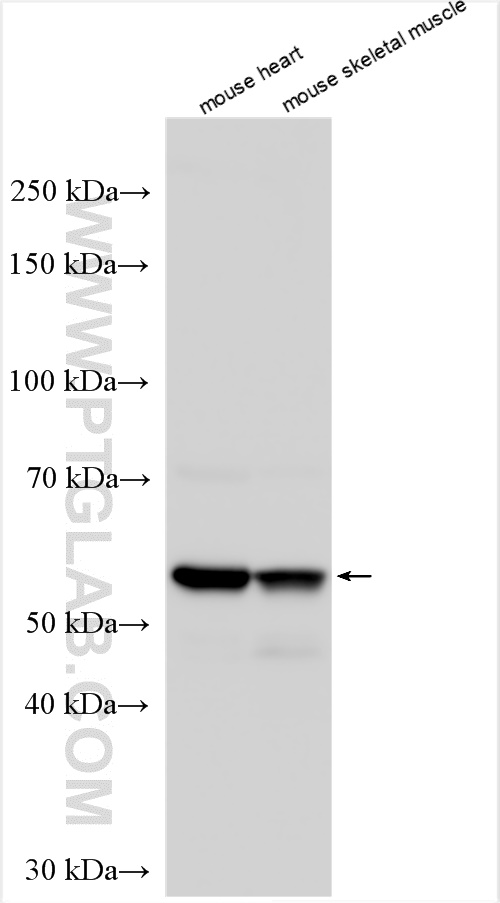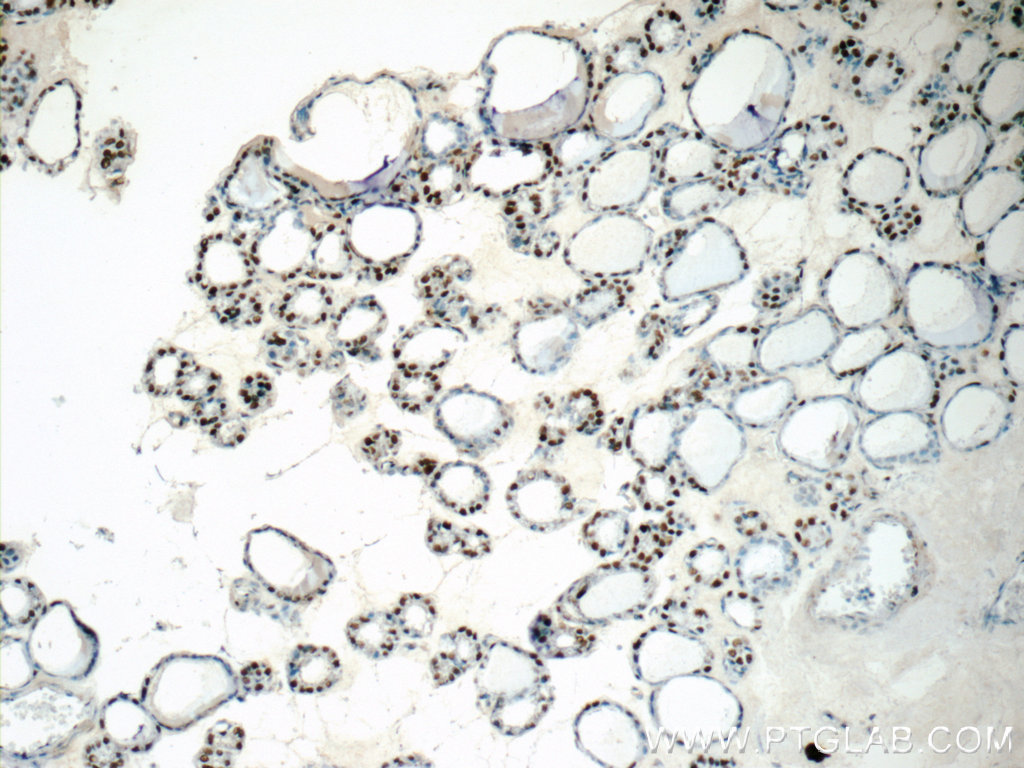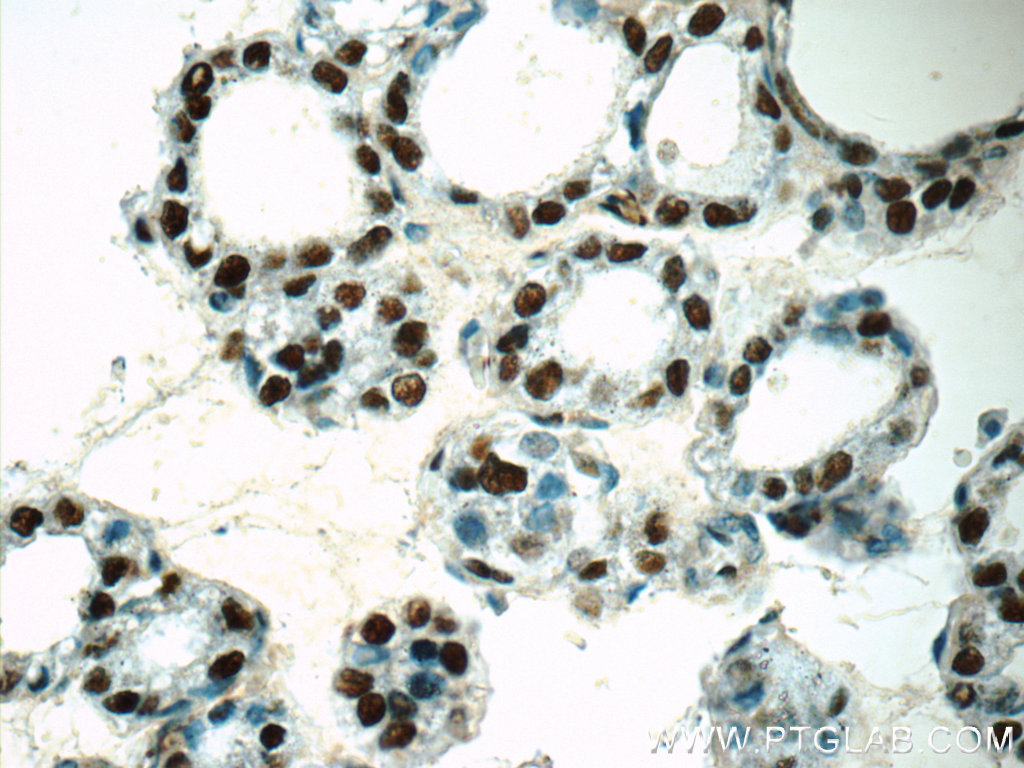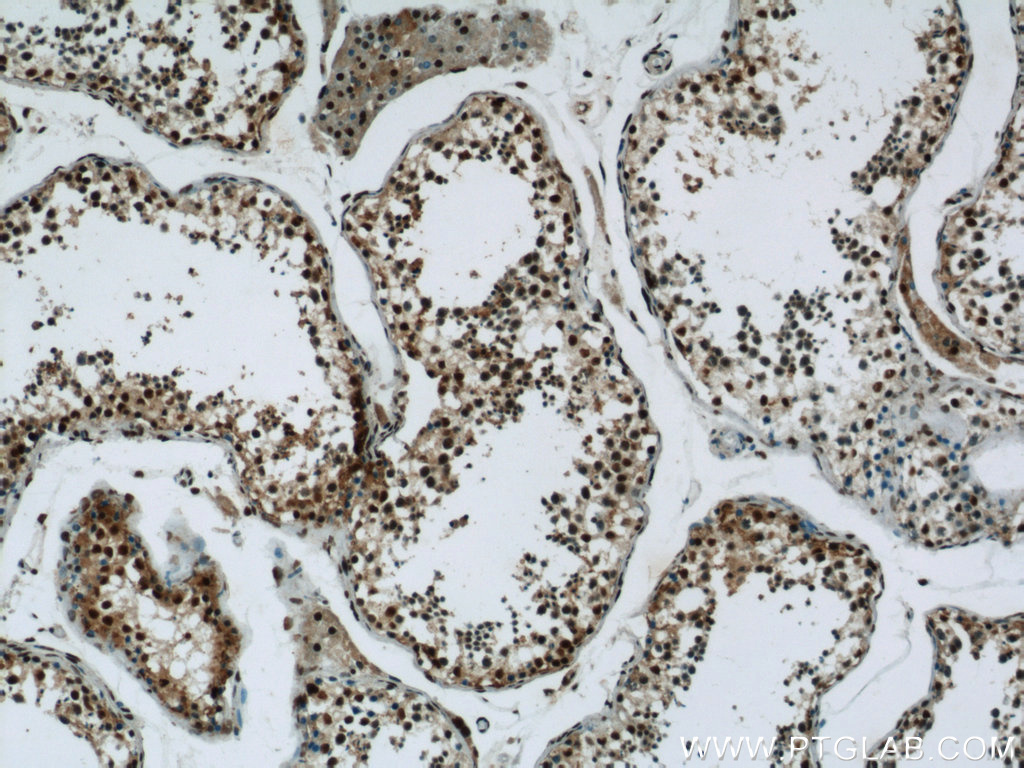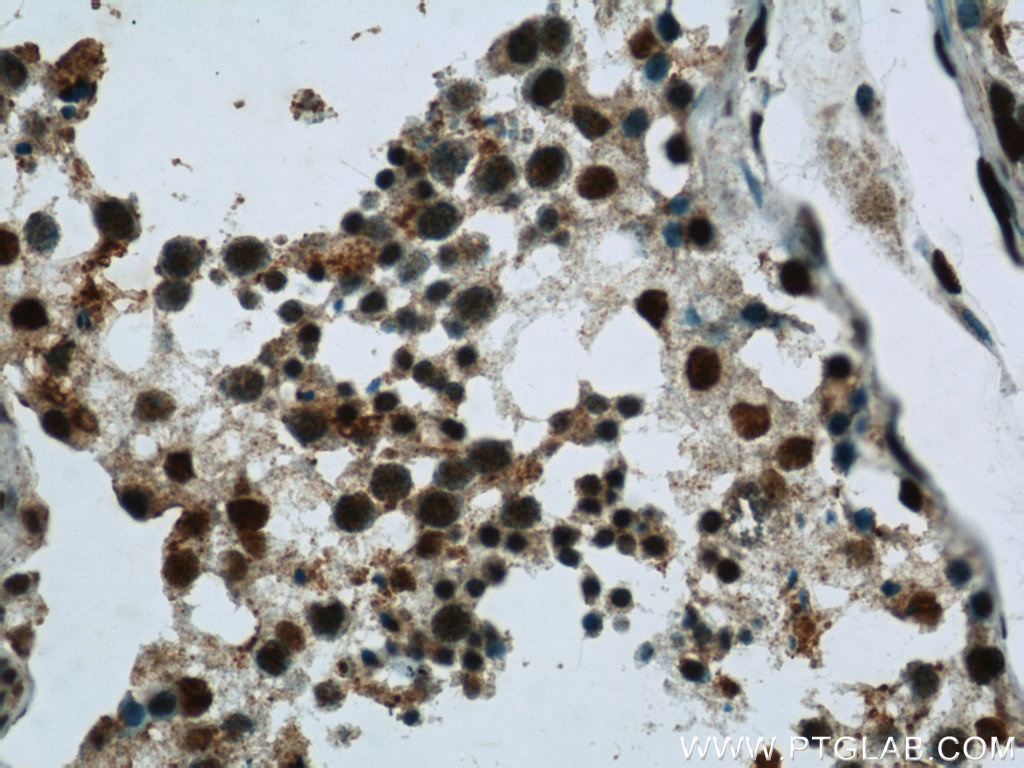验证数据展示
经过测试的应用
| Positive WB detected in | mouse heart tissue, mouse skeletal muscle tissue |
| Positive IHC detected in | human thyroid tissue, human testis tissue Note: suggested antigen retrieval with TE buffer pH 9.0; (*) Alternatively, antigen retrieval may be performed with citrate buffer pH 6.0 |
推荐稀释比
| 应用 | 推荐稀释比 |
|---|---|
| Western Blot (WB) | WB : 1:1000-1:6000 |
| Immunohistochemistry (IHC) | IHC : 1:20-1:200 |
| It is recommended that this reagent should be titrated in each testing system to obtain optimal results. | |
| Sample-dependent, Check data in validation data gallery. | |
产品信息
15575-1-AP targets GMCL1 in WB, IHC, ELISA applications and shows reactivity with human, mouse, rat samples.
| 经测试应用 | WB, IHC, ELISA Application Description |
| 经测试反应性 | human, mouse, rat |
| 免疫原 | GMCL1 fusion protein Ag7929 种属同源性预测 |
| 宿主/亚型 | Rabbit / IgG |
| 抗体类别 | Polyclonal |
| 产品类型 | Antibody |
| 全称 | germ cell-less homolog 1 (Drosophila) |
| 别名 | SPATA29, Germ cell-less protein-like 1, Germ cell less protein like 1, GCL1, GCL |
| 计算分子量 | 59 kDa |
| 观测分子量 | 55 kDa |
| GenBank蛋白编号 | BC007420 |
| 基因名称 | GMCL1 |
| Gene ID (NCBI) | 64395 |
| RRID | AB_2878153 |
| 偶联类型 | Unconjugated |
| 形式 | Liquid |
| 纯化方式 | Antigen affinity purification |
| UNIPROT ID | Q96IK5 |
| 储存缓冲液 | PBS with 0.02% sodium azide and 50% glycerol, pH 7.3. |
| 储存条件 | Store at -20°C. Stable for one year after shipment. Aliquoting is unnecessary for -20oC storage. |
背景介绍
GMCL1, also named as GCL, functions in spermatogenesis. It enhances the degradation of MDM2 and increases the amount of p53 probably by modulating the nucleocytoplasmic transport. In WB test, the antibody recognizes 55 kDa band in our detection.
实验方案
| Product Specific Protocols | |
|---|---|
| WB protocol for GMCL1 antibody 15575-1-AP | Download protocol |
| IHC protocol for GMCL1 antibody 15575-1-AP | Download protocol |
| Standard Protocols | |
|---|---|
| Click here to view our Standard Protocols |
